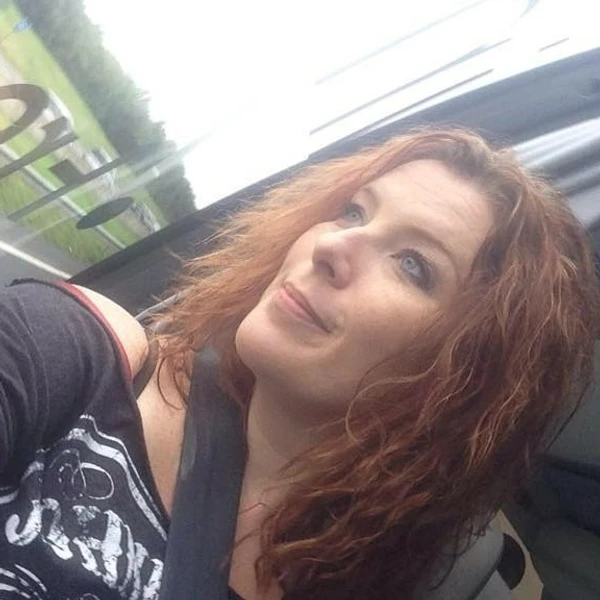
Hobbies and interests
Art
Woodworking
Biking And Cycling
Camping
Reading
Science
Self-Help
Mystery
Horror
Philosophy
Adventure
I read books daily
Natasha White
685
Bold Points
Natasha White
685
Bold PointsEducation
Thomas Nelson Community College
Associate's degree programMajors:
- Registered Nursing, Nursing Administration, Nursing Research and Clinical Nursing
Miscellaneous
Desired degree level:
Bachelor's degree program
Graduate schools of interest:
Transfer schools of interest:
Majors of interest:
Career
Dream career field:
Hospital & Health Care
Dream career goals:
BSN
Future Interests
Volunteering
Ethel Hayes Destigmatization of Mental Health Scholarship
Ethel Hayes Destigmatization of Mental Health Scholarship
Submitted by Natasha White
Thomas Nelson Community College
My first brush with suicide was in my late teens. My childhood friend’s younger cousin, a seemingly normal, happy child we all played with, took his own life. He left a note and I was told he struggled, changing his mind mid-process, and may have survived if someone had been home at the time. I remember from that point on thinking how suicide was so unfair. It was unfair to everyone who was left to deal with the loss as if it was a selfish act. Many of the people around me called it cowardly. At the same time, part of me could see their side because you handled your problems when and where I grew up. You didn’t share feelings, and being strong was a badge of honor. However, another half of me felt sorry for him. That someone could feel so low in their life that they would choose to quit and give up.
Fast forward a few years, and I found myself in a relationship with someone who severely struggled with mental health. We repeatedly tried to get help for him. He was in and out of a mental health unit at the hospital for almost two years. After some time, I realized he wasn’t trying on his end; while I could get him to the facility, he wouldn’t put in the work. Our relationship continued to struggle, and I eventually left for my safety after taking a gun from him one evening. About a year later, his sister reached out to me to say that he was finally successful. I was devastated. I blamed myself for what I could have done, what I should have done. No matter how many people around you say “it wasn’t your fault,” it’s still hard to shake.
As time passed, I lost a few acquaintances but no one very close to me, and the attitudes of people around me and within myself grew, and I began to release the blameful feelings I had. I tried to make anyone I became close to aware of my experiences and urge them to get help if they needed it. I spent most of my life in work as a bartender. The poor man’s psychiatrist, as it’s somewhat called, and I tried to share my thoughts with anyone who was low and could use the pep talk. I told people it’s not just that they leave broken family members in their wake but that the person who takes their life is at their lowest point ever. I tried to urge those I encountered to seek help and support from mental health services. I want people to see there is light in the world, and sometimes we need someone else to help us find it. I tried to ease the pain for surviving friends and family with the idea that sometimes you do everything you can, but it still doesn’t stop them; we can’t always see the signs that suicide will happen. It was still something I didn’t necessarily feel myself, but I knew that’s what people needed to hear.
Two years ago, Amy*, my best friend, killed herself. It was her 50th birthday, and she came to see me at work earlier in the day. She wandered with me, and we chatted while I decorated the restaurant for winter and Christmas, and she told me of the plans she had for going to see another friend out of town next month. We talked about celebrating her birthday this weekend when I had more free time. Within the next few hours, she left, went to a parking lot downtown, and jumped off the building. Amy didn’t leave a note, but she had compiled all her necessary paperwork on her bedside table. She had spoken to her sister that morning the same way she had to me, as if nothing was odd about today or her feelings. She left home that morning knowing fully what she intended to do. Amy wouldn’t be described as the most positive person, with lots of sarcasm and curse words, but she was the “life of the party.” She seemed to everyone to really love life, to enjoy fully everything she did.
There is nothing good that comes from losing a friend. But with this last loss, I was able to take to heart the advice I had shared for all those years. You never really know what’s going on inside someone’s head. You can do all the right things, and they still won’t change some people. You can not blame yourself for not “seeing the signs” or doing more. You can only continue to be a beacon of light and hope that spreading love and stories of sadness and loss might help change one person’s mind.
I want to thank the creator of this scholarship. While this was a painful, tear-filled essay to write, pulling those thoughts from my mind onto paper was something I didn’t even know I needed to do. I know you share that healing process with anyone else who submits an essay.